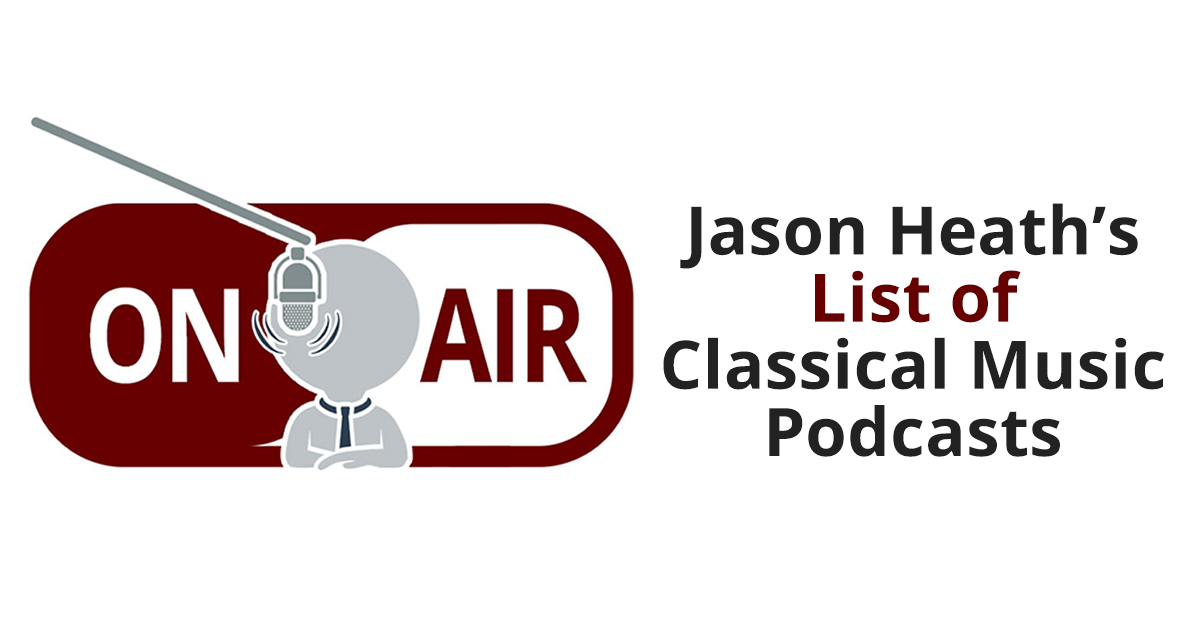I’m now convinced that each and every TAFTO contribution provides a wonderfully unique and enriching approach on how to share a classical music experience. Even though I’ve gone through numerous experiences of taking someone to a concert myself, after I read the contributions always I’m excited to go do it all again as soon as possible.
Alex Ross’ contribution stokes that fire again while simultaneously confirming why he’s one of the best cultural writers today. Having conducted his own private TAFTO program for some time now, his insight is subtle yet profound. Alex allows you genuinely experience what it’s like to make classical music yours, on your own terms, and without the stereotypical pretense or pomp.
And after all, that’s really what TAFTO is all about; empowering people to feel that classical music can be whatever they want it to be on their own terms. Classical music isn’t some “absolute greatest of art forms” with an obstinate sense of entitlement; it’s what each one of us wants it to be and how each person experiences the music is different from one seat to the next, one performance after another.
Take the time to read Alex’s contribution a few times, send it to your friends, and let it roll over your mind; then go take a friend to a concert this weekend.
I was reading Evan Eisenberg’s book The Recording Angel when I came across the following sentences: “Most concert music written before the present century strikes the casual listener as a little too noble, too pure. As Nina put it, ‘I don’t want to be ennobled.’ Her urban nervousness won’t be Platonized away, and only sometimes submits to the fine alembic of a Beethoven sonata. The raw materials are too coarse, the premises too ugly. Most of the time punk rock works better, even for a woman who grew up playing Chopin on a blond piano.”
I also recently came across an article that appeared in the New York Times on May 26, 1939. It was on page A1 above the fold, next to stories about Republican attacks on the New Deal. Headline: “Paderewski Collapses at Garden as 15,000 Gather for Concert.” Some representative passages: “Paderewski … collapsed from what was officially announced as a ‘slight heart attack’ last night in a dressing room in the Madison Square Garden a few minutes before he was scheduled to give the twenty-first concert of his present American tour …. Dr. Dunham sped Mr. Paderewski to his private Pullman car, the Henry Stanley, berthed on Track 31 in Grand Central Terminal … While Mr. Paderewski was being taken to his private railroad car, the huge Madison Square Garden audience, in which were many notables in the musical world, was filing out of the building in stunned silence. When it was announced over the Garden’s loudspeakers that the concert would have to be canceled …many burst into tears. Some were still weeping as they left the auditorium.” What a huge gulf separates that spectacle from the modern classical concert. Only at pop-music events do you see audiences weeping en masse. In general, we in classical music are too busy being “ennobled” to engage in such emotional exhibitionism.
As a critic, I often receive two tickets to performances, so I often take friends along with me. Few of them grew up with classical music, but they always arrive full of curiosity. I usually get the sense that some aspect or another of the experience intrigues them. But I also get the sense that the concert fails to engage them on a fundamental level. In very few cases have I seen friends acquire a full-blown love for classical music. It’s simply not something that fires their imagination. And these are friends who see complex art-house films, who pick up the latest Ian McEwan novel or read Trollope for fun, who are
generally bright or even brilliant people. Based on this small, anecdotal sample, I’m guessing that the task of finding new audiences for classical music in America is going to be immensely tough, and that it’s going to require bold strokes of a sort that we haven’t seen yet from even the most adventurous ensembles.
In an article written for the New Yorker last year, I tackled some of these bigger questions about where
classical music fits in modern American culture, and in the last section of the piece I tried a thought experiment, shaking off my identity as a critic who’d grown up with classical music. Instead, I reimagined the concert experience from the standpoint of those smart friends of mine who go to concerts with me. At the risk of being lazy, I’d like to repeat those paragraphs here, because they sum up
everything I know about “taking a friend to the orchestra”:
I’m imagining myself on the other side as a thirty-six-year-old pop fan who wants to try something different. On a lark, I buy a record of Otto Klemperer conducting the “Eroica,” picking this one because Klemperer is the father of Colonel Klink, on “Hogan’s Heroes.” I hear two impressive loud chords, then something that the liner notes allege is a “truly heroic” theme. It sounds kind of feeble, lopsided, waltz-like. My mind drifts. A few days later, I try again. This time, I hear some attractive adolescent grandeur, barbaric yawps here and there. The rest is mechanical, remote. But each time I go back I map out a little more of the imaginary world. I invent stories for each thing as it happens. Big chords, hero standing backstage, a troubling thought, hero orating over loudspeakers, some ideas for songs that don’t catch on, a man or woman pleading, hero shouts back, tension, anger, conspiracies assassination attempt? The nervous splendor of it all gets under my skin. I go to a bookstore and look at the classical shelf, which seems to have more books for Idiots and Dummies than any other section. I read Bernstein’s essay in “The Infinite Variety of Music,” coordinate some of the examples with the music, read fun stories of the composer screaming about Napoleon, and go back and listen again. Sometime after the tenth listen, the music becomes my own; I know what’s around almost every corner and I exult in knowing. It’s as if I could predict the news.
I am now enough of a fan that I buy a twenty-five-dollar ticket to hear a famous orchestra play the “Eroica” live. It is not a very heroic experience. I feel dispirited from the moment I walk in the hall. My
black jeans draw disapproving glances from men who seem to be modeling the Johnny Carson collection. I look around dubiously at the twenty shades of beige in which the hall is decorated. The music starts, but I find it hard to think of Beethoven’s detestation of all tyranny over the human mind when the man next to me is a dead ringer for my dentist. The assassination sequence in the first movement is less exciting when the musicians have no emotion on their faces. I cough; a thin man, reading a dog-eared score, glares at me. When the movement is about a minute from ending, an ancient woman creeps slowly up the aisle, a look of enormous dissatisfaction on her face, followed at a few paces by a blank-faced husband. Finally, three grand chords to finish, which the composer obviously intended to set off a roar of applause. I start to clap, but the man with the score glares again. One does not applaud in the midst of greatly great music, even if the composer wants one to! Coughing, squirming, whispering, the crowd visibly suppresses its urge to express pleasure. It’s like mass anal retention. The slow tread of the Funeral March, or Marcia funebre, as everyone insists on calling it, begins. I start to feel that my newfound respect for the music is dragging along behind the hearse.
But I stay with it. For the duration of the Marcia, I try to disregard the audience and concentrate on the music. It strikes me that what I’m hearing is an entirely natural phenomenon, nothing more than the vibrations of creaky old instruments reverberating around a boxlike hall. Each scrape of a bow translates into a strand of sound; what I see is what I hear. So when the cellos and basses make the floor tremble with their big deep note in the middle of the march (what Bernstein calls the “wham!”) the force of the moment is purely physical. Amplifiers are for sissies, I’m starting to think. The orchestra isn’t playing with the same cowed intensity as Klemperer’s heroes, but the tone is warmer and deeper and rounder than on the CD. I make my peace with the stiffness of the scene by thinking of it as a
cool frame for a hot event. Perhaps this is how it has to be: Beethoven needs a passive audience as a foil. To my left, a sleeping dentist; to my right, an angry aesthete; and, in front of me, the funeral march
that rises to a fugal fury, and breaks down into softly sobbing memories of themes, and then gives way to an entirely new mood hard-driving, laughing, lurching, a little drunk.
Two centuries ago, Beethoven bent over the manuscript of the “Eroica” and struck out Napoleon’s name. It is often said that he made himself the protagonist of the work instead. Indeed, he engendered an archetype the rebel artist hero that modern artists are still recycling. I wonder, though, if Beethoven’s gesture meant what people think it did. Perhaps he was freeing his music from a too specific interpretation, from his own preoccupations. He was setting his symphony adrift, as a message in a bottle. He could hardly have imagined it traveling two hundred years, through the dark heart of the
twentieth century and into the pulverizing electronic age. But he knew it would go far, and he did not weigh it down. There was now a torn, blank space on the title page. The symphony became a fragmentary, unfinished thing, and unfinished it remains. It becomes whole again only in the mind and soul of someone listening for the first time, and listening again. The hero is you.
– Alex Ross


